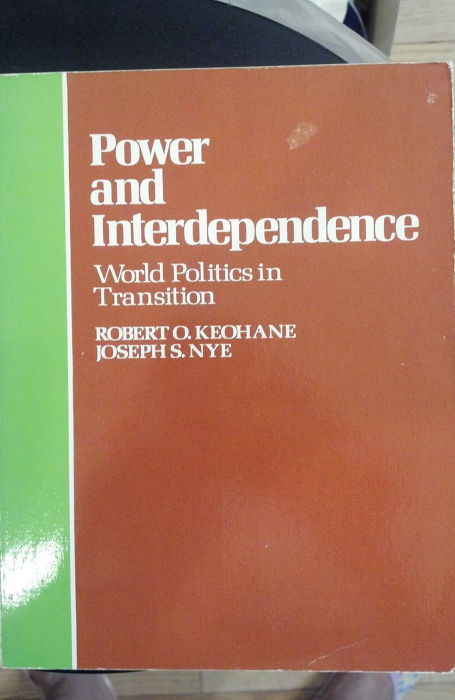Books
Robert O. Keohane, Joseph S. Nye Jr.
Power and Interdependence: World Politics in Transition
Robert Keohane and Joseph Nye’s Power and Interdependence revolutionized the study of international relations by challenging the traditional, power-centric view of world politics. In an era of growing global connections, they argued that military might is no longer the sole currency of influence. Instead, webs of economic, environmental, and social ties bind states together, creating a world where power is exercised as much through cooperation as through coercion. This book remains a must-read for anyone seeking to understand the complexities of global interdependence and its impact on modern diplomacy.
Power and Interdependence introduces the concept of “complex interdependence,” a framework that recognizes the multiplicity of channels connecting societies—ranging from formal diplomacy to transnational organizations and economic exchanges. Keohane and Nye distinguish between “sensitivity interdependence” (how quickly and significantly changes in one country affect another) and “vulnerability interdependence” (the costs of adjusting to those changes), arguing that these forms of interdependence can be sources of both power and constraint. The book uses a wealth of historical and contemporary examples, such as the 1975 oil crisis and the evolution of international monetary policy, to illustrate how states leverage economic and institutional ties to achieve their goals without resorting to force.
A key insight is that, in a world of complex interdependence, issues like trade, environmental protection, and development aid can be as important as military security. Keohane and Nye challenge the realist assumption that military power always dominates, showing that the use of force can disrupt mutually beneficial relationships and often carries prohibitive costs—especially among advanced democracies. They also analyze the changing distribution of power in the international system, using analogies from economics to describe unipolar, bipolar, and multipolar structures, and emphasize the growing importance of international organizations and regimes in managing global affairs.
The enduring legacy of Power and Interdependence lies in its nuanced understanding of how power operates in a world where states are deeply interconnected. By highlighting the diminishing utility of military force and the rise of non-state actors and international institutions, Keohane and Nye paved the way for a more sophisticated analysis of world politics. Their work remains highly relevant as global challenges—such as climate change, pandemics, and economic crises—demand cooperation across borders. For students and scholars of international relations, this book is a foundational text that continues to shape debates about the nature of power and the future of global governance.

